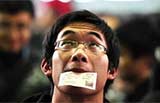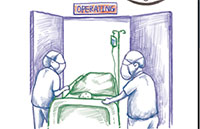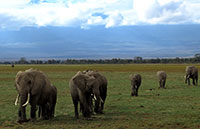Tibet sees remarkable reduction of illiteracy rate
(Xinhua) Updated: 2015-12-09 19:31LHASA - Southwest China's Tibet autonomous region has seen its illiteracy rate of people aged between 15 and 60 nearly halved during the past five years, according to local educational authorities.
Figures announced by the regional education department earlier this month show the ratio has dropped to 0.52 percent, about 0.5 percentage point lower than that in 2011.
In order to boost school enrollment, Tibet scrapped tuition for all children in public kindergartens, primary schools and high schools during the past four years.
Since 1985, the region has allowed children of farmers and herdsmen to enjoy free accommodation, meals and tuition at boarding schools, with the subsidy for each student increased 14 times over the past few decades, now averaging 3,000 yuan this year.
Historical documents show that before Tibet was liberated in 1951, only aristocrats had access to education, while serfs and slaves, who accounted for 95 percent of the region's population, were denied.
"We had very few drop-outs in recent years, since education is affordable by all," said Norbu Cering, head of a high school in Maizhokunggar county.
Tibet has 1,855 schools and more than 600,000 students. The enrollment rates of primary schools, junior high school and high school have exceeded 98 percent, 96 percent and 74 percent respectively.
- Aging population could shrink workforce by 10% in China
- Severe smog brings mask panic buying
- Foreign economists advise on blueprint for next five years
- Online searches spike for masks, purifiers, condoms and sportswear
- Beijing gets tough on red alert offenses
- Children, elderly and sick people are most vulnerable to harm
- Debate flares as smog lingers
- Beijing issues first red alert for heavy air pollution
- Chinese 'ambassadors' shine spotlight on bloody ivory trade
- Database set up to combat fake Living Buddhas







